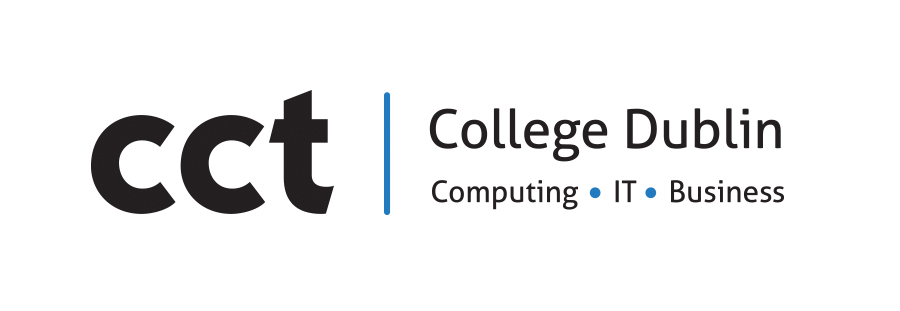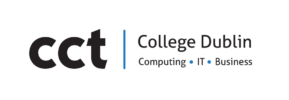BA (Hons) in Business* Course Overview
The BA (Hons) in Business degree course will provide the learner with the knowledge and skills necessary so that the learner will take an active role in medium to long term planning of a business, analysis of the external/internal environments and the competence to make recommendations regarding solution(s) to identified current business-related issues and problems. Learners will be able to demonstrate leadership and management skills and techniques that have been developed and refined in a controlled environment utilising a combination of practical application methodologies and theory based studies.
*Subject to Revalidation by Quality & Qualifications Ireland (QQI)
The BA (Hons) in Business Degree is suited to those who are interested in a career in business and are looking for a qualification that has a broad business focus in terms of the modules covered. It particularly appeals to those who are interested in business but remain unsure of which area to specialise in – for example HRM, Marketing etc. This business degree is also of interest to mature learners who are seeking to reskill – upskill themselves to become more employable, develop a career in business or business management, as part of their continuous professional development. It is also of interest to those who want to gain a general qualification in business with a view to progressing to a Master’s degree in business or a cognate area. It is also suited to those who are interested in developing the knowledge, skills and competencies to establish and manage a start-up enterprise.
The BA (Hons) in Business aims to provide learners with the knowledge, skills and competence for a career in business or to enable them to specialise in a specific field of business at postgraduate level and to provide a platform of knowledge skill and competence upon which they may work in a specific field of business or to establish and run their own enterprise.
The programme aims will be achieved through the following objectives:
- Providing learners with an intellectually challenging and rigorous education at honours degree level in Business;
- Developing the learner’s intellectual ability to analyse theoretical concepts and problems, to identify and implement solutions;
- Encouraging learners to look to innovation and change as mechanisms to promote the growth of an enterprise;
- Placing learners in an environment that encourages the utilisation of practical business skills and key interpersonal skills in the workplace;
- Developing learners’ critical understanding of how the different disciplines of business complement one another;
- Facilitating learners to attain the social and communication skills necessary for a business graduate;
- Fostering a culture which places emphasis on learners becoming self-confident and self-reliant;
- Preparing learners who successfully complete the programme to undertake a Level 9 programme in business or a business-related discipline.
The BA (Hons) in Business* is delivered over three calendar years, comprising two semesters, with intakes commencing in September and February of each year.
Stage 1
- Introduction to Business
- IT for Business
- Microeconomics
- Personal, Professional Development & Critical Thinking
- Business Law
- Business Mathematics
- Financial Accounting
- Introduction to Organisational Behaviour
- Marketing Fundamentals
Stage 2
- AI & Business Analytics
- Consumer Behaviour & Psychology
- People & Workforce Management
- Macroeconomics
- Management Accounting
- Corporate Financial Management
- Project Management in Business
- Leaderships in Organisations
- Management of Operations
- International Business
Stage 3
- Business Ethics and Sustainability
- Business Research Skills
- Entrepreneurship & Innovation
- Investments
- Business Project
- Emerging Challenges for Business
- Strategic Management
- Digital Marketing
*subject to revalidation by Quality & Qualifications Ireland (QQI)
The BA (Hons) in Business degree course is learner-centric, with learners progressing and experiencing the programme via a combination of formal lectures, including guest lectures from industry, mentoring and small group tutoring, direct supervision and project supervision and independent learning, all focussing on the achievement of module and programme learning outcomes based on the core knowledge, skill and competency areas. Mentoring and small group tutoring facilitates specific learning whereby group collaboration is required, in this context additional facilitators assist in the delivery of this element of learning.
Examinations, assignments, projects, reports and real-world case studies will provide the learner with the opportunity to link the concepts and theory to practical examples.
Recent studies by the Expert Group on Future Skills Needs (EGFSN) and in a published document “Guidance for Higher Education Providers on Current and Future Skills Needs of Enterprise” (Forfas) 2015, sets out the future skills needs of enterprises. It references specific skills within each sector that require various business and business management skills as outlined below.
- Food and Beverages Sector: there has been a skills gap identified in the areas of Innovation, Lean Manufacturing and Supply Chain Management
International Financial Services Industry: skills gaps identified include Business Development with detailed product knowledge/industry qualifications - Wholesale and Retail Sector: business leadership (including small business management, brand management, business strategy, finance), customer relationship management, supply chain management, customer service, marketing, communications and personal effectiveness
- Cross Sectoral Enterprise/Generic Skills: to include mathematics, business acumen, management capabilities and entrepreneurship.
A graduate with the BA (Hons) in Business degree should have the knowledge, skills and competencies to successfully perform the functions in a number of these positions.
A core objective of the BA (Hons) in Business is to provide learners with relevant business knowledge, skills and competence that will support them in starting a career in Business, progressing to level 9 study or establishing and managing their own enterprise. The World Economic Forum Future of Jobs Report, 2016, claims the top 10 skills that will be sought by employers in 2020 are:
- Complex problem solving,
- critical thinking,
- creativity,
- people management,
- coordinating with others,
- emotional intelligence,
- judgement and decision making,
- service orientation,
- negotiation, and
- cognitive flexibility
The BA (Hons) in Business degree programme promotes the development and application of these skills in a business context. In doing so, the programme prepares graduates for entry to industry at a supervisory or junior management.
- A grade H5 or above in two higher level leaving certificate subjects together with a minimum of O6/H7 in four other subjects. This should include:
1.A grade of O6/ H7 or above in Leaving Certificate English,
2.A grade O6/H7 or above in Mathematics;
or
- Holders of a FETAC/QQI major award Level 5 Certificate in Business (or equivalent) or QQI/HETAC major award Level 6 Advanced Certificate in Business (or equivalent) can apply for entry onto the programme.
- English language competency to CEFRL B2+ (IELTS 6.0) for students whose first language is not English
- Applicants who do not possess the specified entry qualifications may demonstrate their potential to succeed through provision of other evidence as outlined in ‘Access’ below.
- Applicants will be admitted to the programme based on their ability to evidence their potential to succeed. The possession of an Irish Leaving Certificate or equivalent school-leaving award from another country, at the appropriate level of achievement for admission to an honours degree programme in Ireland will be taken as a proxy of this achievement.
- Applicants with QQI Further Education awards at Level 5 (in cognate areas) or at Level 6 will be eligible to apply.
- Mature applicants who have reached the age of 23 on or before the 1st January in the year in which they are making the application are required to satisfy an Admissions Interview.
- Learners presenting international qualifications will be subject to NARIC review for leaving certificate equivalence.
- Applicants who do not possess the specified entry qualifications may demonstrate their potential to succeed through provision of other evidence including current or prior experiential or certified learning, and / or through the completion of an assessment set by the College. Such applicants will normally be required to attend an interview. In all cases applicants will be assessed on their ability to evidence appropriate academic standards and written English competency. Applications for Recognition of Prior Learning will be reviewed in accordance with CCT’s policies on the Recognition of Prior Learning CCTP602 – Recognition of Prior Learning (RPL), Transfer and Exemptions http://www.cct.ie/about.qa/
As an independent higher education institution, tuition fees are payable on this programme. Fees may vary on whether you are living in Ireland or living abroad at the point of application. Please view fees for all programmes at this link.
All QQI accredited programmes of education and training of 3 months or longer duration are covered by arrangements under section 65 (4) of the Qualifications and Quality Assurance (Education and Training) Act 2012 whereby, in the event of the provider ceasing to provide the programme for any reason, enrolled learners may transfer to a similar programme at another provider, or, in the event that this is not practicable, the fees most recently paid will be refunded.
We are hosting a number of events in the lead up to the next academic year to give prospective students the opportunity to find out more about their course and the College. At the moment these events are virtual and you can pre-register here.
You can also make a safe socially distanced 1-2-1 appointment with an Admissions Advisor in the College campus building here from 9am-5pm Monday to Friday.
How to apply
Application for entry to this programme can be made via the CAO (CAO code CT325) or directly to the CCT College Dublin Admissions Office.


